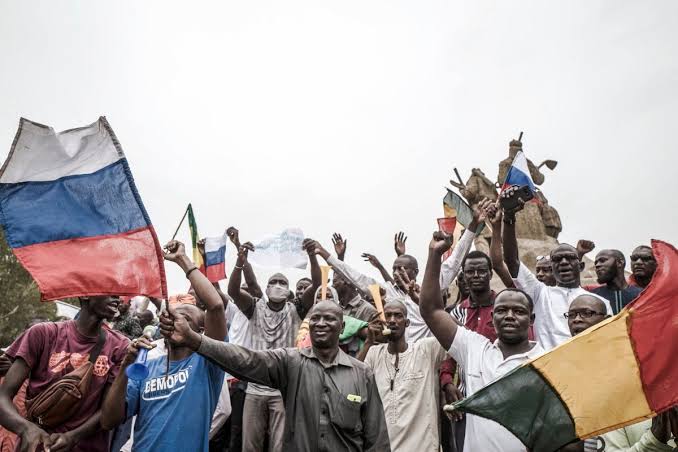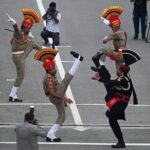Russia and China are increasingly using ideological influence as a weapon — not only through disinformation but by building alternative narratives to counter the Western-led information order. In Africa, Russia is experimenting with deep cultural, media, and psychological operations to reshape local allegiance.
Why Mali?
- Post-coup Power Vacuum
- Since the 2020 and 2021 military coups, Mali has distanced itself from France and Western partners, creating a void filled by Russia and Wagner.
- Lack of democratic oversight makes Mali fertile ground for opaque influence operations.
- Anti-French Sentiment
- Decades of French military presence created resentment.
- Russia presents itself as a liberator and alternative partner, exploiting nationalist narratives.
- Military Government’s Need for Legitimacy
- The junta seeks international recognition and media control to suppress dissent.
- Russia offers media training, surveillance tools, and state narrative amplification.
- Regional Influence Hub
- Mali sits at the crossroads of West African instability.
- Establishing an influence base here allows ideological contagion into Burkina Faso, Niger, and Guinea, where military governments are also rising.
Which Russian Agency is Likely Responsible?
The African Initiative is a Russian media organization established in September 2023, following the death of Wagner Group leader Yevgeny Prigozhin. It was founded by Viktor Lukovenko, a former member of Wagner’s propaganda network, with the aim of continuing and expanding Russia’s influence operations in Africa.
The African Initiative is closely linked to Russian intelligence services, particularly the Federal Security Service (FSB). It operates openly as a news agency but functions as a tool for disseminating pro-Russian narratives and disinformation across the African continent. The organization employs tactics similar to those used by the Internet Research Agency, including the use of troll farms and local influencers to manipulate public opinion.
One of the African Initiative’s key strategies involves training local journalists in countries like Mali to promote Moscow’s interests. For instance, in July 2024, the organization launched a journalism school in Bamako, Mali, where 60 students were trained to become correspondents for the agency. This approach allows Russia to embed its narratives within local media ecosystems, enhancing the credibility and reach of its propaganda.
The African Initiative’s activities have raised concerns among Western officials and analysts, who view it as part of a broader Kremlin strategy to undermine Western influence and promote authoritarian regimes in Africa. The organization’s efforts include spreading disinformation about public health initiatives and supporting military juntas in countries like Mali, Burkina Faso, and Niger.
In summary, the African Initiative serves as a modern extension of Russia’s information warfare tactics, leveraging local media and cultural channels to advance its geopolitical objectives in Africa.
Russia’s shift from Wagner’s propaganda tools to those under Russia Today (RT) and more official Kremlin-backed media in Mali reflects several strategic and operational reasons:
1. Legitimacy and Soft Power Projection
- Wagner is widely seen internationally as a mercenary group with a shadowy reputation, linked to abuses and covert operations.
- Using RT and Kremlin-backed outlets lends a veneer of official state legitimacy and professionalism to Russia’s messaging, which can be more effective in winning hearts and minds locally and internationally.
2. Sustainability and Institutionalization
- Wagner’s propaganda is often tactical, short-term, and linked to battlefield objectives.
- RT represents a long-term investment in influence operations, focusing on media infrastructure, journalist training, and cultural engagement, which build deeper, more sustainable narratives.
3. Wider Audience Reach
- RT and affiliated media platforms have broader reach, including TV, radio, online, and social media in multiple languages, expanding Russia’s information footprint beyond the immediate conflict zone.
- Wagner’s tools are more insular, often targeting military audiences or specific local groups.
4. Avoiding Negative Association
- Russia wants to distance its official diplomatic efforts from Wagner’s notorious image, especially after Prigozhin’s death and increased international scrutiny.
- Shifting influence work to RT and the African Initiative softens perceptions and helps normalize Russian presenceas a legitimate partner.
5. Coordinated Kremlin Control
- Bringing operations under RT and the African Initiative agency, which is closely tied to the Kremlin and FSB GRU ensures tighter coordination and messaging discipline.
- It reduces fragmented or contradictory messaging that can arise from Wagner’s semi-autonomous propaganda efforts.
6. Focus on Media Training and Capacity Building
- RT and the African Initiative emphasize training local journalists in “sovereign media” principles, fostering local pro-Russian media elites—a longer game that Wagner’s PSYOPs typically don’t pursue.
Summary
The transition reflects a strategic evolution from covert, militarized propaganda to a more institutionalized, state-controlled media influence campaign designed for legitimacy, longevity, and deeper societal impact in Mali and the wider region.
1. GRU (Main Directorate of the General Staff)
- The most likely operator.
- Historically runs psychological operations (PSYOPS), front media outlets, and supports Wagner-linked ventures.
- GRU Unit 54777 specializes in influence operations and foreign media manipulation.
2. SVR (Foreign Intelligence Service)
- May support longer-term strategic recruitment and cultural exchanges, especially in urban elite circles.
4. Wagner/“Africa Corps” Media Units
- Now rebranded and integrated under Russian MoD control.
- Run Telegram channels, distribute radio propaganda, and even train African journalists in Russian-aligned narratives.
📌 Key Elements of the Operation
- Training journalists in Bamako to adopt “sovereign media” values.
- Broadcasting anti-Western and pro-Russian content.
- Promoting a narrative of a “multipolar world” rejecting colonialism.
- Discrediting ECOWAS, France, and UN forces.
- Supporting Russian-language and cultural expansion.
Consequences and Threats
To Mali and Region
- Entrenchment of autocracy through controlled narratives.
- Weakening of local civil society and free press.
- Dependency on Russian military and ideological tools, reducing sovereignty.
To West Africa
- Spread of militarized anti-Western governance models.
- ECOWAS fragmentation, risking broader collapse of collective diplomacy.
- Possible spread of Russian influence to coastal West African states.
To Global Order
- Normalization of alternative information ecosystems that undermine truth standards.
- Disruption of Western stabilization efforts (EU, UN, U.S.) in the Sahel.
- A new Cold War-style proxy competition in Africa — but ideological, not just military.
Strategic Forecast (2025–2028)
| Scenario | Description | Probability | Risk |
| Entrenchment | Russia solidifies media and elite influence in Mali | High | High |
| Regional Spread | Model exported to Burkina Faso, Niger | Medium | High |
| Backlash | Popular unrest or elite defection from Russia | Low | Medium |
| Western Counter | U.S./EU launch narrative-focused counter-programs | Medium | Moderate |
🧭 Recommendations for Western Policymakers
- Launch media capacity-building programs in Mali and neighboring states with transparent Western funding.
- Support independent journalism through secure digital platforms.
- Counter Russian narratives not with propaganda, but by exposing real corruption and exploitation.
- Enhance intelligence cooperation within ECOWAS to monitor influence operations.
- Engage religious and cultural leaders to inoculate against foreign ideological capture.
Russia’s goal in using Malian journalists is to build a pro-Russian, anti-Western narrative from within the local media ecosystem, giving its messaging greater legitimacy and reach. By training and co-opting local journalists, Russia can:
- Amplify Kremlin narratives using indigenous voices.
- Discredit Western influence, especially France and the U.S.
- Support the military junta’s legitimacy through favorable coverage.
- Export its model of “sovereign media”, echoing censorship and state control.
- Create long-term ideological loyalty among future media elites.
Russia is focusing on Malian journalists because Mali is currently the centerpiece of its influence operations in West Africa, offering a uniquely permissive environment:
- Mali’s military junta is fully aligned with Moscow and has expelled Western forces and media, creating a controlled information space.
- Popular anti-French sentiment makes the population more receptive to Russian-aligned narratives.
- Mali serves as a hub for broader regional expansion into neighboring pro-Russian juntas in Niger and Burkina Faso.
Russia is likely to push the following narratives through Malian journalists:
- Anti-Western propaganda: Portraying France, the U.S., and the EU as neocolonial, destabilizing forces.
- Pro-sovereignty messaging: Promoting Mali’s “independence” from Western influence.
- Positive image of Russia: Framing Russia as a reliable partner and liberator.
- Legitimization of military rule: Supporting the junta as a patriotic alternative to corrupt civilian elites.
- Criticism of ECOWAS and the UN: Undermining regional and international efforts to restore democracy.
🔍 1. Historical Context
- Mali had a long-standing French security and linguistic influence.
- Russia’s current media strategy is a reversal of France’s post-colonial soft power model — not just military substitution.
🕸️ 2. Infrastructure of Influence
- Detail how Russia uses training centers, scholarships, Russian-language platforms, and possibly African Corps-linked media groups.
- Consider if Russia is trying to create a pan-African alternative media network aligned with its global narrative.
🛡️ 3. Role of Religion and Culture
- Mali is a deeply religious and culturally rooted society. Russia may avoid direct cultural imposition and instead partner with Islamic clerics or nationalist voices to spread its narrative subtly.
4. Geopolitical Competition
- Include China’s role: Is China concerned or cooperative? Russia’s ideological push may conflict with China’s more economic-first model in Africa.
- Compare to U.S./EU counter-influence — or lack thereof.
6. Policy Options
- Recommend low-cost, high-impact Western responses, such as:
- Funding independent Malian digital media.
- Broadcasting in local languages.
Fact-checking networks with cultural legitimacy.
Russia’s information warfare in Mali serves strategic, ideological, and operational goals designed to entrench its influence in West Africa and reshape the regional balance of power. The aims include:
🎯 1. Undermining Western Influence
- Discredit France, the U.S., and the UN by painting them as neocolonial actors.
- Shift public opinion away from Western military or development missions.
Narrative focus: “France exploited Mali; Russia is a true partner.”
🛡️ 2. Legitimizing the Military Junta
- Promote the ruling military government as a defender of sovereignty and national dignity.
- Suppress dissent or pro-democracy activism by labeling it foreign-sponsored.
Tools: Media training, state-run outlets, and social media echo chambers.
📡 3. Normalizing Russian Presence
- Portray Wagner/“Africa Corps” not as mercenaries, but as security providers and nation-builders.
- Spread stories of Russian humanitarian aid, infrastructure, or cultural support.
Outcome: Create local acceptance and even loyalty to Russian operatives.
🧠 4. Indoctrination Through Media
- Train Malian journalists in Russian-style “sovereign media” doctrine (state-aligned, anti-Western).
- Embed pro-Russian thinking in public discourse and future generations of media professionals.
Long-term aim: Shape a new elite class sympathetic to Russia.
🌍 5. Spreading the Model to Neighbors
- Use Mali as a launchpad for influence in Burkina Faso, Niger, and Guinea — all under military regimes.
- Position Russia as a pan-African ally in a multipolar world, challenging Western-led global norms.
Motto-style messaging: “Africa must chart its own path — with Russia, not the West.”
⚔️ 6. Strategic Denial
- Block or dilute narratives about Wagner’s abuses, Russian resource extraction deals, or human rights violations.
- Counter Western media with “whataboutism” and false equivalencies.
🧩 Conclusion:
Russia’s information warfare in Mali is not about short-term PR — it is a strategic campaign aimed at:
- Restructuring African media ecosystems,
- Installing Russia-friendly elites,
- And building a sphere of ideological influence to challenge Western liberal norms in the Global South.
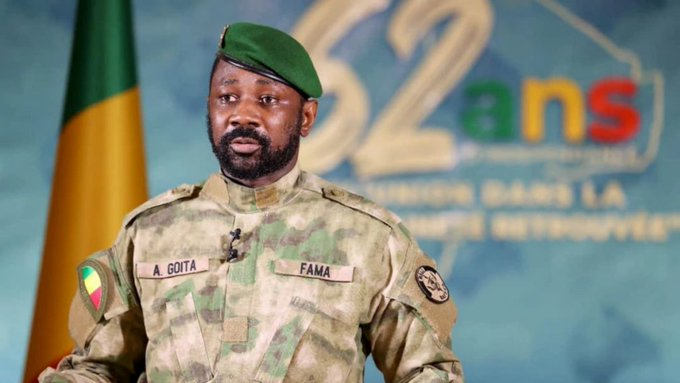
More on this story: Mali Junta Leader Gets Backing to Serve as President Until 2030

More on this story: Kremlin to elbow Paris out of Africa, raising risks for France
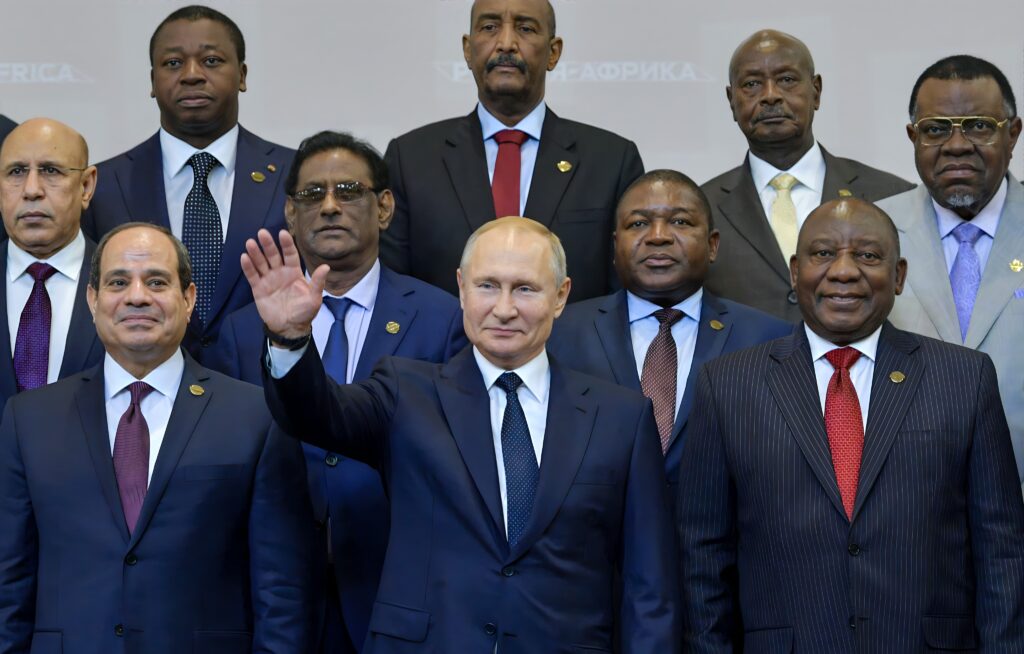
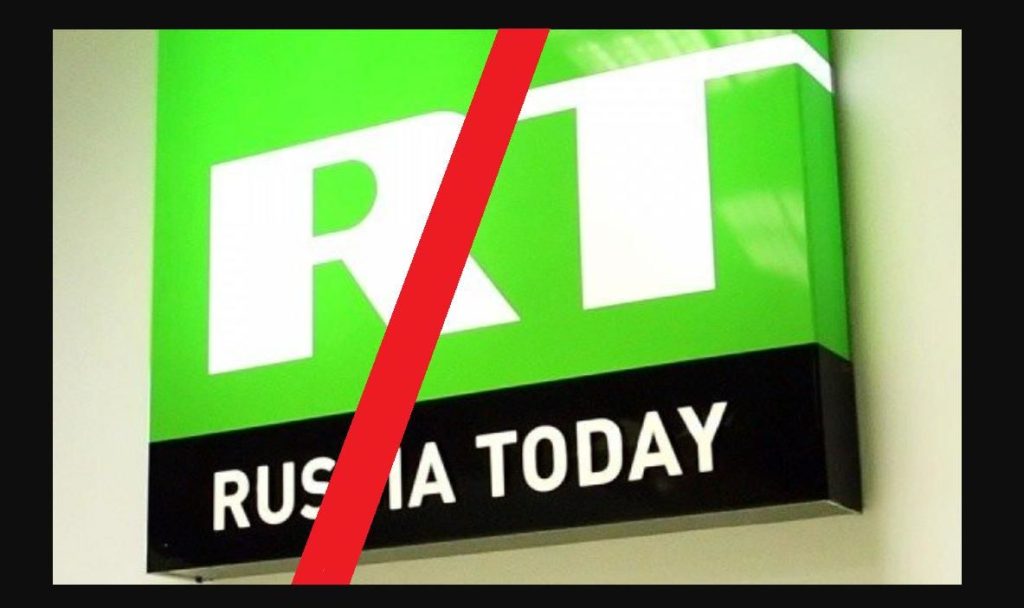
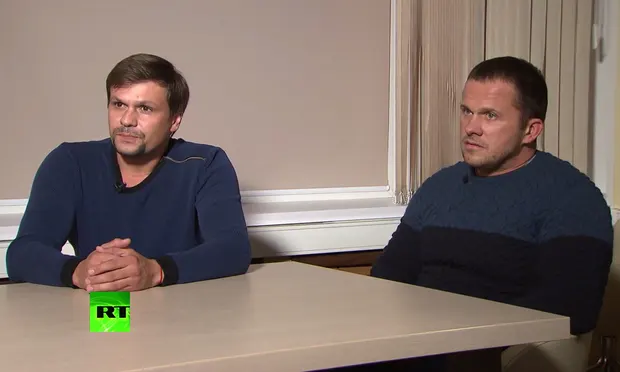
More on this story: RT as Russian interagency tool for running psyops


